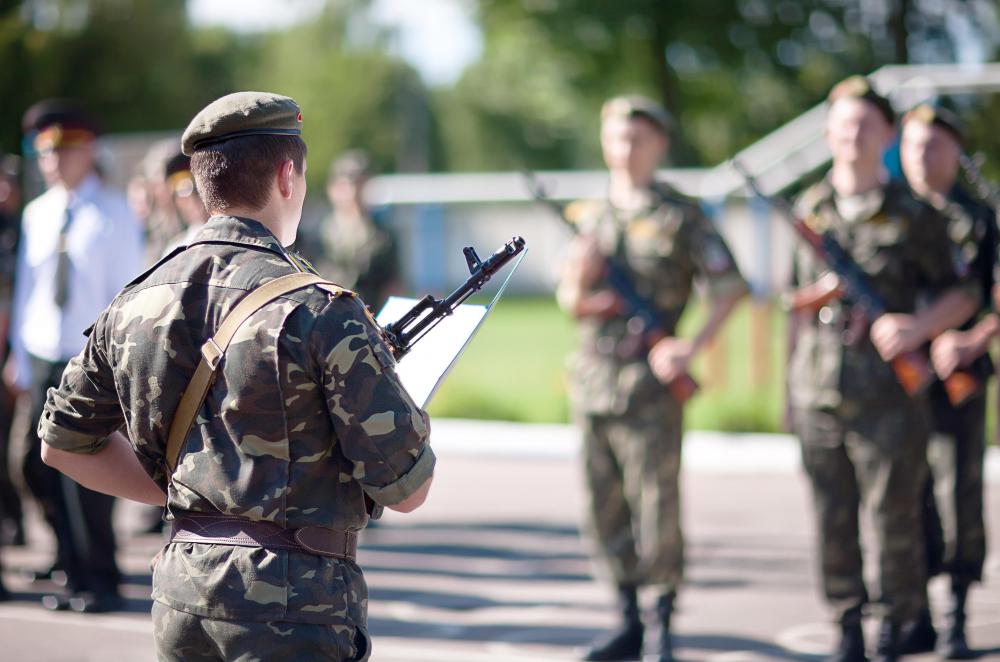At WiseGEEK, we're committed to delivering accurate, trustworthy information. Our expert-authored content is rigorously fact-checked and sourced from credible authorities. Discover how we uphold the highest standards in providing you with reliable knowledge.
How do I Become an Army Lawyer?
Army lawyers, who are commissioned officers in the army's Judge Advocate General's (JAG) Corps, are members of what's been called the oldest law firm in the United States. Competition to join this elite organization is high. Entry is limited to a select few young men and women who have completed their academic legal training and have passed the bar exam, and have also completed basic military training and officer training. Like the legal branches of the other services, the Army JAG Corps is very selective, accepting less than 25% of all applicants. Thus, it's much more difficult to become an Army lawyer than it is to join most civilian firms.
Most of those who want to become an Army lawyer apply to Army JAG during their final year of law school, just as they would to any civilian law firm. Some applicants, however, already have civilian legal experience, and a select few have graduated from one of the service academies and have been approved for graduate training in law school; that is, a West Point graduate can become an army lawyer.

Upon acceptance to the JAG Corps, candidates must successfully complete basic military training, followed by officer training, after which they take a 12-week course in military law with a strong emphasis on the Uniform Code of Military Justice (UCMJ) &emdash; the code of law governing all aspects of the US military &emdash; at the Army's accredited law school in Virginia.

Military pay is generally not an incentive to become an Army lawyer. Top flight graduates of highly-rated law schools can usually count on high starting annual salaries when they join top-tier civilian law firms. Compensation in the military is based on rank, though, and a brand-new Army lawyer receives a captain's commission. With allowances, then, JAG captains might earn about a third to a half of what they could earn in a private firm. They can expect promotions in rank and the accompanying pay raises, however, as well as a host of other benefits that come along a military career.

In addition, JAG lawyers enjoy the opportunity to serve their country and participate in important cases. While many civilian lawyers begin their careers by doing research and assisting senior lawyers, Army lawyers generally start right away providing real-life legal assistance to service members and their families, and participating in courts-martial as prosecutors or defense counsel. In these roles, their expertise in military law, as well as a range of civilian legal issues, is constantly called upon. JAG lawyers also advise commanders at all levels on a wide range of military, civilian and international legal matters, including the rules of engagement and operational issues. Combat commanders in the field will frequently consult with JAG lawyers, planning operations in accordance with the laws of armed conflict.
AS FEATURED ON:
AS FEATURED ON:













Discussion Comments
@Soulfox -- Not to mention the fact that JAG lawyers who are accepted for the program (whether sent by the Army or recruited out of law school) have a guaranteed career. That is a valuable thing.
Yes, some lawyers go on to make a pile of money straight out of school, but a lot of them struggle for awhile before they get established (if they get established at all). JAG lawyers can at least avoid all of that painful stuff.
It is very true that a lot of attorneys apply to by JAG lawyers during their final year of law school, but that is not the only way people become an Army lawyer.
Indeed, some of them apply for that privilege while in the Army and are awarded with the assignment to go to attend law school and then graduate. They then dedicate a certain amount of years to the Army as JAG lawyers.
Even when people do go that route, the Army is very selective when it comes to who gets to be a JAG lawyer. Those that are already in the Army and are selected to go are almost always officers. Those lucky enough to be selected as future JAG lawyers draw a salary and are paid room and board while attending school (and the Army pays for that, too).
Post your comments